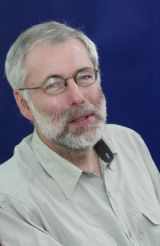Network Directors
Network Directors
Network Members
Network Members
Previous UGEAN Members
Mr George MacBride

Honorary Senior Research Fellow
Email: george.macbride@glasgow.ac.uk
University page: https://www.gla.ac.uk/schools/education/staff/?webapp=staffcontact&action=person&id=4fdfece48092
Research interests
George’s research interests focus on the relationships among assessment, curriculum and pedagogy, on the ways in which together they can promote meaningful learning, on education to promote social justice and on the means of promoting and supporting sustainable educational change.
Current projects
As a member of the CAMAU research team within the University, George participated in the planning of the research model and programme, in the coordination of work across the six curricular areas, in interviewing policy makers and in analysing and reporting findings; he was a member of the Welsh Government's Coherence Group. Follwing this, he is currently a member of the Welsh Government's Assessment Advisory Group and Learning Portfolios Working Group and has developed for the Government a number of papers on assessment, progression and professional learning to support curriculum development and enactment. He has recently completed a small project investigating the parameters for commissioning support materials for enactment of Curriculum for Wales and is currently working with other UGEAN members on a commissioned research project into the Curriculum for Wales Principles of Progression and means of realising these in practice.
He is a member of School of Education team developing the online MSc Programme Assessment in Education, contributing in particular to developing the Course on Assessment for Improvement and Accountability.
Brief history of work in assessment
Following his retirement from secondary teaching in 2006, George has participated in University of Glasgow teams and development projects on diverse aspects of curriculum and assessment across school education (funded by EU, EPSRC, Scottish Government, Welsh Government, Education Scotland, Scottish Qualifications Authority). During this period, George was commissioned by Scottish Government as a consultant supporting the formation of national policy on achievement, assessment and qualifications. He has also carried out research and development commissions for Education Scotland on STEM and on assesment of significant aspects of learning. Work for the Government and Education Scotland involved participation in working groups and contributing to the National Assessment Resources and to professional learning materials on assessment and progression and on the recognition of wider achievement.
Recent relevant publications
George’s recent relevant publications can be found here.
Mr Ernest Spencer

Honorary Senior Research Fellow
Email: ernest.spencer@glasgow.ac.uk
University page: https://www.gla.ac.uk/schools/education/staff/?webapp=staffcontact&action=person&id=4fdfede18b95
Research interests
Currently active with colleagues in developing and maintaining high quality interactions among researchers, policy makers, advisers and teachers to optimise assessment policies and practices.
Current projects
Ernest has been actively involved over the past two years with the University of Glasgow/UWTSD CAMAU (Steps) Project, working with teachers and policy makers in Wales to develop progression frameworks for the emerging Welsh curriculum through collaborative, ‘co-creation’ methods. He provided research reviews and guidance on the nature of a progression framework in particular for the teachers working on the curriculum in the Languages, Literacy and Communication (LLC) and the Expressive Arts (E Arts) Areas of Learning and Experience. Currently collaborating with UWTSD colleagues in the drafting of journal articles about the development in each of LLC and E Arts. Points of interest include the following.
- In LLC, comment on the implications of the suggestion made by Mosher and Heritage (2017) that, because of the complexity of and variations in the ways in which young people learn to communicate and use languages, there is no compelling research evidence about the order in which successful learners become familiar with the various aspects of language and therefore, at least at present, no clear basis for writing detailed descriptions of progression in a way that could be used to specify next steps in learning at any particular point.
- In E Arts, comment on the AoLE (Areas of Learning and Experiences) Group’s commitment to and effective arguments for a generic approach to describing progression, while aiming to ensure learners’ entitlement to experience of and progression in the separate E Arts disciplines; and on the implications for practical, planning, learning/teaching and assessment of the approach the Group has taken.
- In both AoLEs, comment on the process of developing the curriculum through a collaborative ‘co-creation’ approach and on what is needed to carry this process forward with teachers more generally.
Ernest has recently worked on the writing of online Masters courses on Principles and Theories of Assessment for Social Justice and Assessment for Learning and Progression, and teaches the former of these. He has also, at the request of course leaders, contributed lectures on assessment to BEduc 4 and to the Masters course for international students, Contemporary Themes in Education Policy 2018-19.
Brief history of work in assessment
After a period as teacher and Head of Department of English in secondary and further education, Ernest developed extensive expertise in all aspects of assessment. His roles included leading major assessment research projects at the Scottish Council for Research in Education and, as the National Specialist for Assessment with Her Majesty’s Inspectors of Education (HMIE), providing policy advice and teacher education during the development of the original Scottish monitoring surveys (the Assessment of Achievement Programme) and the Higher, Standard Grade and 5-14 assessment arrangements. In more recent years he has been involved in assessment-related research in the context of Curriculum for Excellence for the University of Glasgow (in a Scottish Government-funded project), Education Scotland and the Scottish Qualifications Authority. He has participated in and published material on international assessment developments, including the planning and implementation of IEA and IAEA monitoring surveys, an ESRC-funded series of seminars on new assessment paradigms and the OECD study of formative assessment in secondary schools.
Ernest’s work in assessment throughout his career has developed in parallel with significant work and publications in the fields of literacy and language in learning.
Recent relevant publications
Ernest’s recent relevant publications can be found here.

